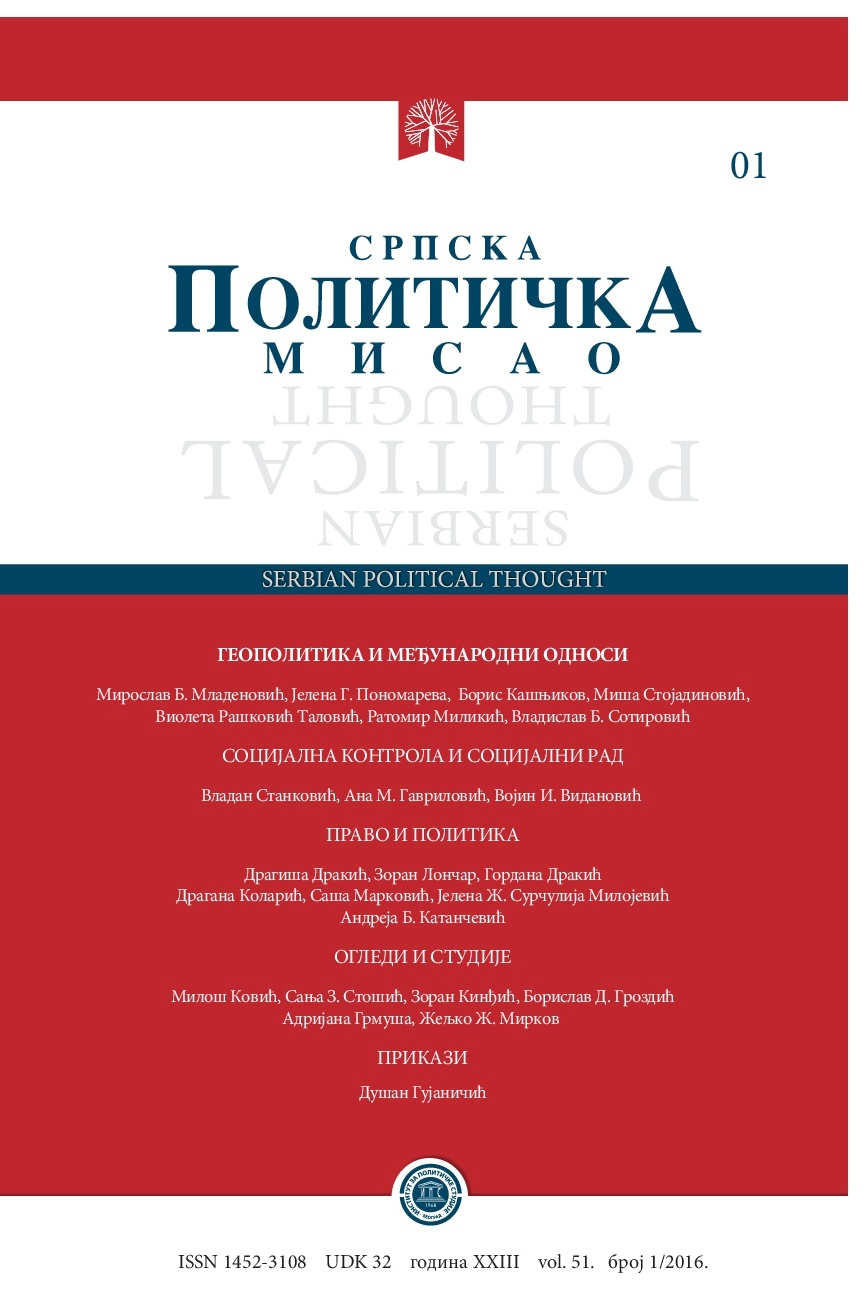Адмирал Ернест Трубриџ: узроци српског пораза (1915)
Admiral Ernest Troubridge: The Causes of the Serbian Defeat (1915)
Author(s): Miloš O. KovićSubject(s): Politics, Military history, Political history, Pre-WW I & WW I (1900 -1919)
Published by: Институт за политичке студије
Keywords: Troubridge; Allies; Great Britain; Serbia; Albania; The First World War; retreat; 1915;
Summary/Abstract: In the Serbian political tradition there is а general image of the Serbian wartime allies as being selfish and disloyal. It seems that it is rooted in the collective memory of the supposed Churchill’s Machiavellian attitude towards the Serbs in the Second World War, as well as in the Serbian experiences with the Western Powers in the recent Wars of the Yugoslav accession. When it comes to the First World War, it is based on the memory of French and British armies standing in Thessaloniki in 1915, making no serious attempt to help Serbia, watching its army being encircled and defeated by the superior enemy forces. It was, in fact, general opinion among the Serbs in 1915, that Serbia was defeated thanks to the inactivity and selfishness of its Allies. The main goal of this article is to examine the opinion of Admiral Ernest Troubridge in this question. Relatively unknown to the Serbian historiography, Troubridge was the eyewitness of the first class, since he was the head of the British Naval Mission in Serbia in 1915, the commander of the forces of the Allies during the battle for Belgrade in October 1915, and the commander of the port of San Giovanni di Medua during the early phase of the evacuation of the Serbs from Albania in December 1915 and January 1916. The main sources, from which this article draws its evidence, are Troubridge personal diaries and his official reports to the British Admiralty. Although Troubridge believed that Serbian authorities, especially its Army Headquarters, were partly responsible for the catastrophy of 1915, his deep personal conviction was that Serbia was left at the mercy of its enemies by its Allies. Moreover, he was personally offended by the fact that British authorities did not take into consideration his warnings that Danube, and not Dardanelles, was the key of victory in the Balkans. According to this, his opinion was that the Serbs were to be used in the Allies’ joint attack on Austria-Hungary, and supported in the hard times of the year 1915. His frustration became gradually deeper, since during retreat in 1915 and 1916, in the talks with the disappointed and angry Serbs, he had to defend the official position of Britain and France, and to insist that Serbia was to fight until supposed help comes.
Journal: Српска политичка мисао
- Issue Year: 2016
- Issue No: 1
- Page Range: 239-251
- Page Count: 13
- Language: Serbian

